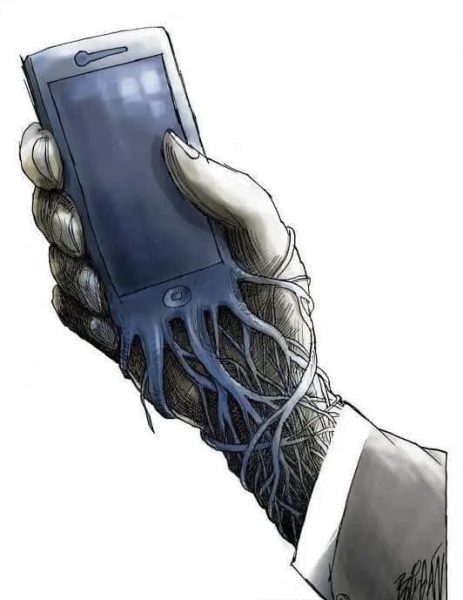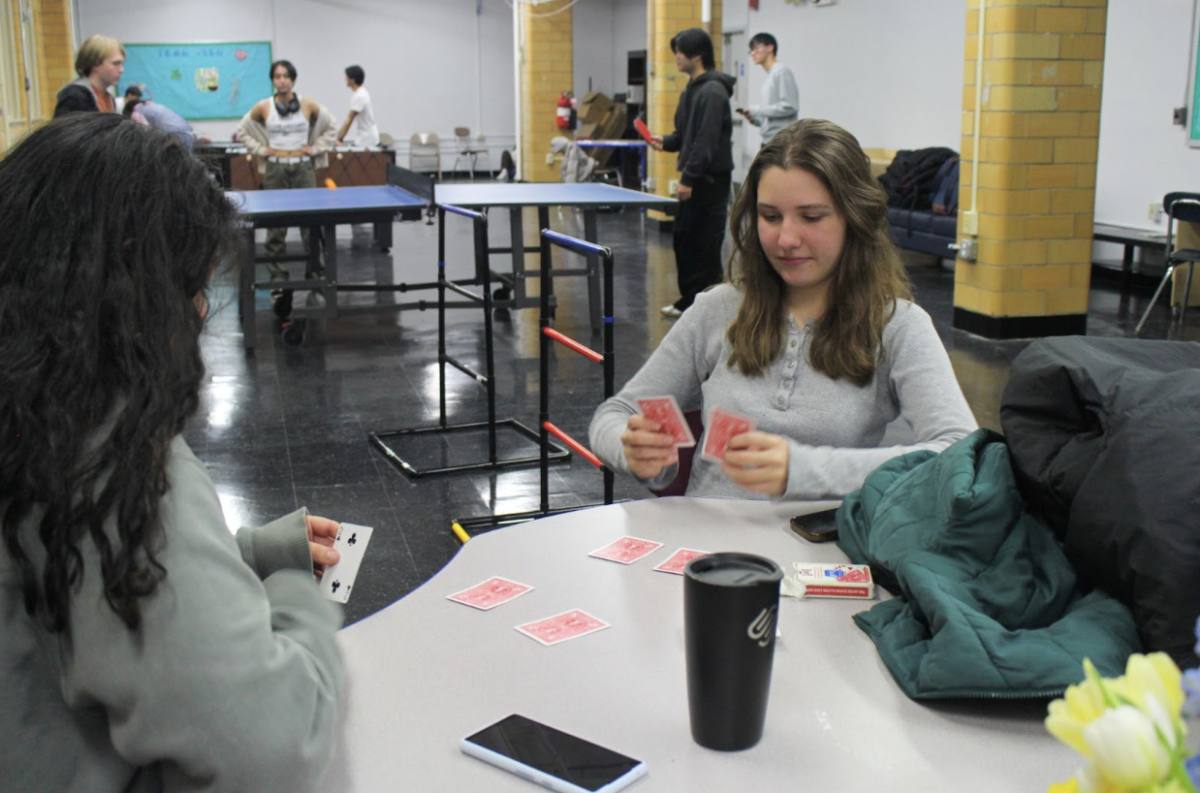 Dear Gen-Z Teenagers,
Dear Gen-Z Teenagers,
Ever since I started being active on social media, I’ve lost more and more time online. When trying to finish homework, my phone is there, tempting me to use it like yarn to a cat.
I tell myself, “One minute,” only to realize ten has passed.
Companies make their apps increasingly more addicting since their profits correlate directly with the attention we give them. Since we teens have limited willpower, we succumb to temptation and spend more time on our phones. A study published in JAMA Pediatrics shows that the time children spend on their screens rose 52% in just three years. Each day, the average American spends three hours on their phones. That may not seem significant, but over ten years, that’s roughly 456 days wasted staring at a screen. Technology and social media have overwhelmingly negative consequences and we should be aware of its impact on us.
Excessive time online negatively affects our brains too. Sleep experts warn that the blue light emitted from our phones mimics daylight and forces us to wake up. Therefore, using your devices before bed can interfere with your sleep schedule and sleep quality. Like falling dominoes, poor sleep leads to poor memory, stress, anxiety, and poor concentration. Furthermore, Johan Hari, author of Stolen Focus, describes how after spending three months away from the internet, he was “stunned by how much [his] attention came back.” This points us to the conclusion that devices can potentially compromise your focus.
Moreover, increased time spent online leads to less time socializing. This leads to loneliness, which, according to the National Library of Medicine, is linked to depression, anxiety, and stress.
Some may argue that blaming the responsibility of declining teenage mental health on technology isn’t rational. The leading explanation argues that “Teenage misery is a rational response to Covid, Donald Trump, climate change, mass shootings, misogyny, and other problems.” However, according to David Leonhardt, a senior writer at The New York Times, “this mental health deterioration predates COVID-19 and is also evident in countries that didn’t elect Trump or suffer mass shootings.” This pinpoints the major cause of declining mental health on technology.
Checking Instagram and TikTok to keep updated with friends is reasonable, but consider how addicting the scrolling feed is. So, dear teenagers with the fear of missing out, you’re not alone. We are the first generation to be born into the internet. As a Gen-Z myself, I understand the temptation to check social media. But picking up your phone is the gateway for life to go to waste. Let’s regulate the digital dependence dragging us down, it’s time to reclaim our lives.
Best Wishes,
Your Fellow Gen-Z
Works Cited
Cherry, Kendra. “How Do Smartphones Affect the Brain?” Verywell Mind, Verywell Mind, 13 Sept. 2023, www.verywellmind.com/how-do-smartphones-affect-the-brain-2794892. Accessed 3 Mar 2024.
Leonhardt, David. “The Phone in the Room.” The New York Times, The New York Times, 27 Feb. 2023, www.nytimes.com/2023/02/27/briefing/phones-mental-health.html. Accessed 3 Mar 2024.
Mushtaq, Raheel, et al. “Relationship between Loneliness, Psychiatric Disorders and Physical Health ? A Review on the Psychological Aspects of Loneliness.” Journal of Clinical and Diagnostic Research : JCDR, U.S. National Library of Medicine, Sept. 2014, www.ncbi.nlm.nih.gov/pmc/articles/PMC4225959/. Accessed 3 Mar 2024.
Schwartz, Casey. “It’s Time We Reclaim Our Focus.” The New York Times, The New York Times, 16 Feb. 2022, www.nytimes.com/2022/02/16/well/mind/focus-johann-hari.html. Accessed 3 Mar 2024.










































